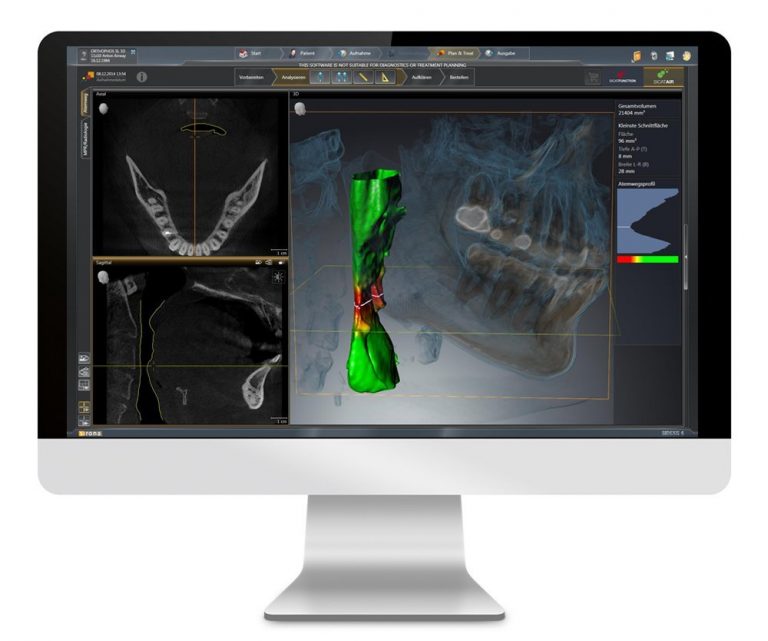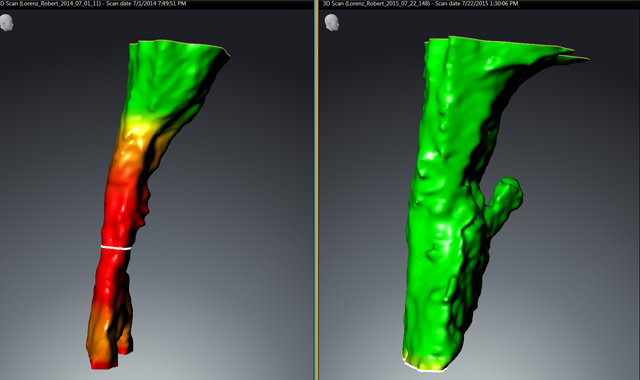Restful Nights Await: Effective Sleep Apnea Treatments at Branson Dental Center
Are restless nights affecting your daily life? Sleep apnea is more than just snoring; it’s a serious condition that impacts your health and well-being. At Branson Dental Center, we offer advanced sleep apnea treatments designed to improve your sleep and overall health. Discover how our innovative solutions can help you breathe easier and sleep better.

Understanding Sleep Apnea
Sleep apnea is a disorder characterized by the repeated interruption of breathing during sleep. This condition frequently arises when the muscles in the throat relax excessively, blocking the airway.
The most common type, obstructive sleep apnea (OSA), occurs when the tongue is sucked against the back of the throat, blocking airflow. This leads to disrupted sleep, loud gasping, and decreased oxygen levels, which can cause serious cardiovascular issues, daytime sleepiness, and difficulty concentrating.
Causes for Sleep Apnea
Several factors contribute to sleep apnea, including:
- Excess Weight: Fat deposits around the airway can obstruct breathing.
- Age and Gender: Middle-aged and older men are at higher risk.
- Family History: Genetics can influence airway structure and increase risk.
- Lifestyle Factors: Smoking and alcohol use can worsen sleep apnea symptoms.
- Medical Conditions: High blood pressure, type 2 diabetes, and chronic nasal congestion can contribute to sleep apnea.
What Is the Treatment for Sleep Apnea?
Effective sleep apnea treatments vary based on the severity of the condition. At Branson Dental Center, we offer personalized solutions, including:
- Oral Appliance Therapy: This treatment involves using a specially fitted device during sleep to align the jaw and maintain an open airway. It’s a comfortable alternative to CPAP machines and works well for individuals with mild to moderate sleep apnea.
- 3D Cone Beam Imaging: We use advanced 3D technology to assess your airway and create a precise treatment plan tailored to your needs.
- CPAP (Continuous Positive Airway Pressure) Therapy: For severe cases, CPAP delivers pressurized oxygen through a mask to keep the airway open.
Our team collaborates with sleep specialists to ensure a comprehensive approach to your treatment.
Why Choose Branson Dental Center for Sleep Apnea Treatments?
- Expertise and Experience: Our team of skilled professionals has extensive experience in treating sleep apnea using the latest dental sleep medicine technology.
- Comprehensive Evaluation: We conduct thorough assessments, including a 3D cone beam scan, to evaluate your airway and accurately identify obstructions.
- Personalized Care: Every patient is unique. We tailor treatment plans to suit your needs, ensuring optimal results and comfort.
- State-of-the-art Technology: We use the latest technology to provide effective and minimally invasive sleep solutions.
- Convenient Location: As a trusted dentistry in Branson, MO, we’re conveniently located to serve the community’s sleep health needs.
The Process: From Consultation to Better Sleep
- Initial Consultation: We’ll discuss your sleep concerns and review your medical history during your first visit. A 3D cone beam scan will help us evaluate your airway.
- Comprehensive Examination: We assess your jaw muscles, soft tissue areas, and oral health, including cancer screenings and bite analysis.
- Custom Appliance Design: We use digital impressions to design a custom-fit oral appliance that keeps your airway open during sleep.
- Receiving Your Appliance: Once your appliance is ready, we ensure a perfect fit and provide detailed instructions for usage and care.
- Follow-Up Appointments: We schedule follow-ups to monitor your progress and make necessary adjustments for maximum comfort and effectiveness.
Innovative Sleep Solutions for Restful Nights
Branson Dental Center utilizes the latest technology in dental sleep medicine to ensure the most effective treatment outcomes. Our team reviews your cone beam scan using advanced sleep medicine technology, which allows us to see your airway space clearly and provide targeted solutions.
Whether you’re experiencing loud snoring, daytime fatigue, or waking up gasping for air, our team can help you find the best sleep apnea treatments tailored to your needs.
The Connection Between Sleep Apnea and Oral Health
- Bruxism (Teeth Grinding): Stress from sleep apnea can cause teeth grinding, which can wear enamel and cause jaw pain.
- Dry Mouth: Blocked airways can result in mouth breathing, causing dry mouth and increasing the risk of cavities and gum disease.
- Gum Disease and Inflammation: Chronic inflammation associated with sleep apnea can lead to gum disease.
As a leading provider in dentistry, we take a holistic approach to your health. We address sleep apnea and its impact on oral health.

More Than Just Sleep Apnea Solutions
- Invisalign Clear Braces for a straighter, healthier smile without metal brackets.
- Comprehensive dental care, from preventive to restorative services, ensures the highest standard of oral health.
- Family-oriented services make us the preferred choice for your family’s dental needs.
Frequently Asked Questions
The most suitable treatment varies based on the severity of your condition. Oral appliance therapy is very effective for mild to moderate cases, while CPAP therapy may be required for severe cases. At Branson Dental Center, we customize treatment plans to align with each patient’s unique needs, ensuring optimal care and improved patient outcomes.
Common indicators of sleep apnea include loud snoring, persistent daytime fatigue, morning headaches, and episodes of gasping for air during sleep. A sleep study is advised for an accurate diagnosis. We can arrange convenient at-home sleep studies to enhance your comfort and ensure you receive the necessary evaluation for your health.
Yes, most medical insurance plans typically cover treatments for sleep apnea, including essential options like oral appliances and CPAP machines. Our dedicated team is here to assist you in navigating the insurance process, ensuring a smooth and stress-free experience as you prioritize your health and well-being.
Invisalign Clear Braces primarily focus on aligning teeth, but they can also indirectly improve jaw position, which may help with sleep apnea by increasing airway space. If you’re considering this treatment, our expert team is ready to assess whether Invisalign fits your specific dental needs and overall health conditions.
We provide cutting-edge dental sleep medicine technology, tailored care, and thorough assessments utilizing 3D cone beam imaging. Our comprehensive, holistic approach maximizes sleep quality and enhances overall well-being, ensuring each patient receives the best possible health outcomes. Experience the difference with our advanced techniques and personalized service.
